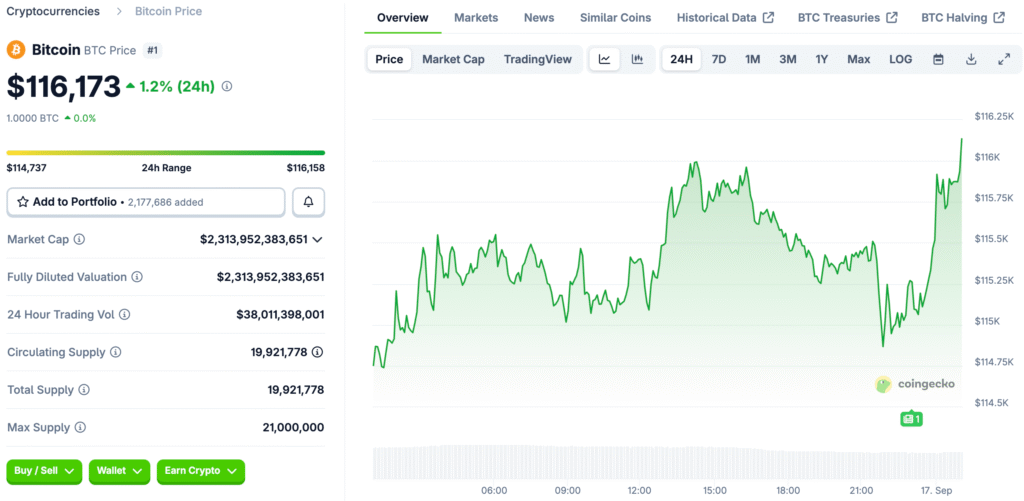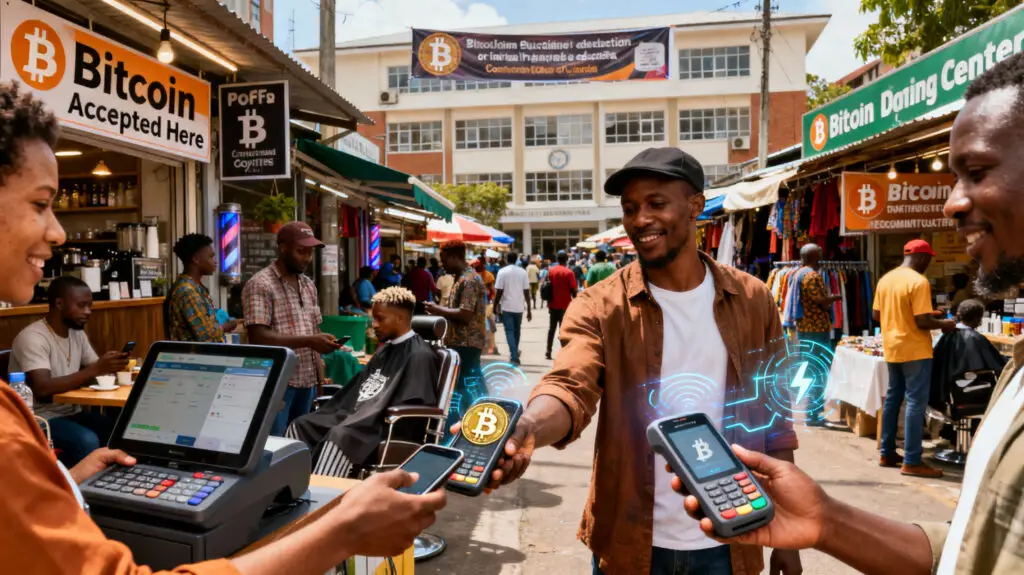Bitcoin’s Change from a Store of Value to a Global Currency
Bitcoin was once a very unstable asset, but it is now known as the best-performing financial instrument of the last ten years. Its fixed supply of 21 million coins makes investors more confident in it, making Bitcoin a way to protect against inflation and financial instability around the world.
Bitcoin is becoming more widely accepted for everyday transactions involving goods and services, not just for speculative trading. Merchants and communities around the world are starting to accept it. This change shows that Bitcoin can work as both an inflation hedge and a currency that can be used in economies around the world.

Merchant Adoption Driving Everyday Bitcoin Transactions Worldwide
More and more businesses around the world are accepting Bitcoin, which lets people use it directly to pay for everyday goods and services without having to pay extra to convert it. This trend is clear in cities like Vancouver and Kampala, where more and more restaurants, gyms, barbers, and even tourism companies are accepting Bitcoin.
Bitcoin’s legitimacy comes from businesses using it, which shows how local businesses adapt to new technologies to stay competitive and attract customers from around the world who are comfortable with technology. These changes show that Bitcoin is slowly but surely becoming a widely accepted way to pay for things in many different industries and communities around the world.
How Technology and Payment Platforms Help Bitcoin Grow
Technology is a big part of Bitcoin’s growth. For example, BTCMap tracks how many people are using it, and Square makes it easy to make payments on the Lightning network. These improvements make it much easier for merchants to accept Bitcoin payments without having to change how they do business in markets around the world.
Square’s use of Lightning shows how established fintechs help Bitcoin become more widely accepted while also making sure that payments are processed quickly, safely, and cheaply around the world. These kinds of technological advances are very important for Bitcoin to become a working global currency that anyone, including individuals, small businesses, and institutions, can use.
Recommended Article: Bitcoin Whale Selloff Pressures BTC Near $116K Resistance
Circular Economies Strengthening Bitcoin’s Community Value Globally
Bitcoin is the only way to trade in circular economies, which are like small economies where people only trade goods and services with cryptocurrency. These communities promote deeper Bitcoin integration, demonstrating how local efforts can establish enduring ecosystems dependent solely on decentralized currency in the contemporary global landscape.
By making it easier for people to use Bitcoin to pay for things, circular economies help more people use it and make it less necessary to use traditional banks. These networks show that Bitcoin is becoming more and more important, not just in theory but also in practice, since people all over the world trade with it every day.
Africa Emerging as a Powerful Hub for Bitcoin Exchange
People in Africa have adopted Bitcoin as a useful way to handle money because it lets them avoid unreliable banks and unstable local currencies. Bitcoin is able to solve important socioeconomic problems in many places, as shown by grassroots efforts and merchants getting involved in places like Uganda.
Funds like the Circular Bitcoin Africa Fund help people use Bitcoin every day by supporting education, merchant integration, and social projects. These changes show that Africa has the potential to lead the way in Bitcoin adoption around the world by incorporating cryptocurrency deeply into community-based economic systems around the world today.
Educational and Social Impact of Bitcoin Across Communities
Schools in Kampala teach kids about Bitcoin as part of their education. This gives them the digital financial knowledge they need to succeed around the world. These kinds of programs make sure that Bitcoin use goes beyond just tech fans and becomes a part of everyday life and school systems in many different communities around the world.
More and more orphanages and community groups around the world are accepting Bitcoin donations. They use the cryptocurrency to pay for important services and make life better for people in poor areas. These humanitarian uses show that Bitcoin is useful for more than just making money; it can also help solve important social and economic problems around the world right now.
Bitcoin’s Future as True Global Money Beyond Speculation
Bitcoin is a unique force for change in global financial systems because it can be both a store of value and a way to make transactions. The growing use of Bitcoin suggests that it will be used more often in everyday situations, like trading goods and services around the world.
The use of Bitcoin by merchants and in circular economies will make it even more clear that it is real money, not just an investment. This change makes Bitcoin more important than ever for solving problems like inflation, financial inclusion, and the digital transformation in both developing and advanced economies around the world today.























